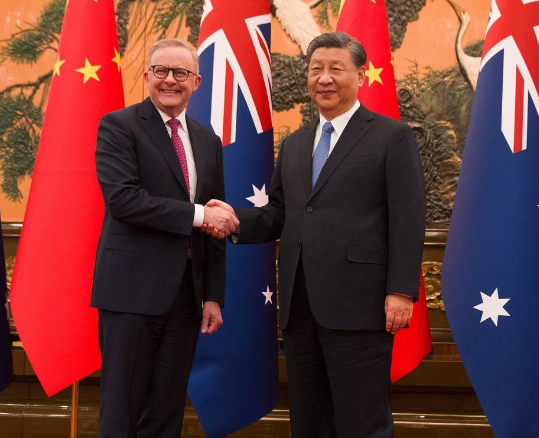This website uses cookies so that we can provide you with the best user experience possible. Cookie information is stored in your browser and performs functions such as recognising you when you return to our website and helping our team to understand which sections of the website you find most interesting and useful.
Australia ‘expects’ removal of China’s wine tariffs ‘shortly’
A trade minister has said that the Australian government “expects” the removal of tariffs on wine to occur once China concludes its review, which is due shortly.

The news from assistant trade and tourism minister Tim Ayres was made to Sky News at the 13th World Trade Organisation (WTO) ministerial conference in Abu Dhabi.
A delegation from Australia has attended the event, that also includes minister Don Farrell, which aims to review the functioning of the multilateral trading system, and also to “take action on the future work of the WTO”.
Ayres told the news outlet that the government hopes the relaxation will occur once the review concludes “shortly”, he said.
Absolutely focused
He said the government was “absolutely focused on a government on normalising the relationship” with China and it was keen on “removing the last remaining trade impediments for Australian exports in China.”
It comes as a number of previous tariffs and restrictions to trade have been removed, with, according to Ayres, AU$18bn-worth of “impediments” being removed out of a total AU$20billion originally imposed.
Ayres added: “There is an agreed approach that China is following where they are conducting a review very similar to the barley review.
“We expect that to conclude shortly and expect that China will follow through in the same way they did on barley.”
Review
It follows a review being announced by the Chinese government in December, after a number of meetings between the two countries in recent months as it seeks to resolve the long-running issue.
Its commerce ministry said in an official statement at the time that it would conduct a review into the anti-dumping and anti-subsidy tariffs that were put in place on Australian wine imports.
That announcement came after the news in November 2023 that China and Australia had reached an agreement to settle the World Trade Organisation dispute ahead of the tariffs expiration, which was due to occur in 2026.
The WTO dispute was raised by Australia in June 2021, and an arbitration panel assembled in March 2022.
As referenced by Ayres in the latest comments on the issue, China has already announced in a notice earlier this year that it would be scrapping 80.5% tariffs on Australian barley, which were originally imposed during the height of the two countries dispute in 2020.
China also lifted an unofficial ban on Australian coal in January 2o23.
Wine tariffs
China’s trade tariffs on wine originally came into effect in November 2020, imposing a charge of 107.1 – 212.1% on wine exports initially (the rates varied by company), which subsequently rose to 116.2 – 218.4% in March 2021.
The punitive export sanctions contributed to wiping AU$2.08bn off the value of Australian wine exports in the year to 30 June 2022.
But in recent months, the Australian prime minister Anthony Albanese has discussed Australian wine tariffs with Chinese president Xi Jinping, as the two countries seek to normalise their relationship.
Market
The Chinese market for Australian wine shrunk by 97% since the sky-high tariffs were imposed in 2020. The penalty has led to a surplus of wine grapes which are being left to go bad as producers simply can’t move them on.
As the drinks business reported in 2023, total exports of Australian wine fell by 26% in the year to March 2022.
However, outside of exports to China, there was in fact 7% growth in value terms for the country’s winemakers, amounting to AUS$2.03 billion – the highest value since 2010.

